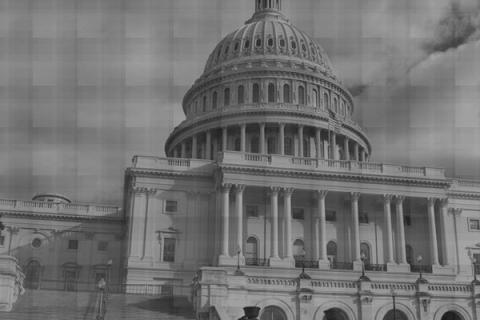California might be one step closer to rejoining nationwide settlement talks between major U.S. banks and a coalition of state attorneys general over allegations of widespread mortgage fraud.
"For the past 13 months we have been working for a resolution that brings real relief to the hardest-hit homeowners, is transparent about who benefits and will ensure accountability," State Attorney General Kamala Harris said in a prepared statement released Sunday night. "We are closer now than we've been before, but we're not there yet."
In October, Harris pulled out of negotiations between the nation's five largest lenders and attorneys general representing all fifty states. The California AG was concerned that the $25 billion deal didn't provide enough relief for distressed homeowners and that it granted bank officials immunity from civil investigations into their lending practices.
The new plan, which has enticed California back to the table, would end all civil investigations by the state but would not prohibit future criminal investigations of bank officials.
Critics like Sean O'Toole, founder and CEO of Foreclosureradar.com, still say that the settlement proposal comes up woefully short. O'Toole's company tracks foreclosure filings nationwide. Even if California were to get a quarter of the money (about $6 billion), this represents just a fraction of the equity that is lost by homeowners every year when lenders foreclose on their homes, he told the Sacramento Bee. O'Toole called the move “largely meaningless” and said it would only fix roughly three months worth of foreclosures.
Other critics say there are more than just loan modification issues to consider.
“The proposed settlement will not move the evicted back to their homes,” writes Michael Collins at themoneyparty.org, adding:
[The settlement] will not establish a moratorium on foreclosures, running at over a million per year. There will be no cram downs forcing the banks to absorb part or all of inflated housing prices caused by a real estate bubble that the banks and Federal Reserve Board helped create. In addition, be assured that the settlement will not hold bankruptcy courts accountable nor the attorneys for their failure to spot obvious errors in bankruptcy proceedings, errors that would have invalidated many creditor claims.The settlement, however, will create a private relief for the big banks, regulators, and politicians responsible for this mess. The relief will spare the bankers prosecution under existing laws and seriously complicate lawsuits that have the potential to devastate lending institutions by righting the wrongs done to citizens.
Relying on the research of University of Utah law professor Christopher L. Peterson, Collins points out that the involvement of Mortgage Electronic Registration Systems (MERS) – created by Fannie Mae, Freddie Mac and big banks in the early 1990′s to provide a then-new and legally murky method for recording and registering the sale of real estate – in the "robo-signing" scandal has put commercial banks on the defensive in civil courts. That's because centuries of common law statutes (on the books in all fifty states) preclude entities such as MERS from bringing foreclosure actions for lack of legal standing, says Collins.
The latest settlement proposal would allow Bank of America, Citibank, Wells Fargo, JPMorgan Chase and Ally to lower the principals on mortgages for almost 1 million of their customers by an average of $20,000. It would also offer victims of deceptive lending practices an $1,800 award.
California has been the state hardest hit by the foreclosure crisis in terms of sheer volume. According to RealtyTrac, more than 400,000 California homeowners face some form of foreclosure filing each year, more than double that of the runner-up: Florida.

